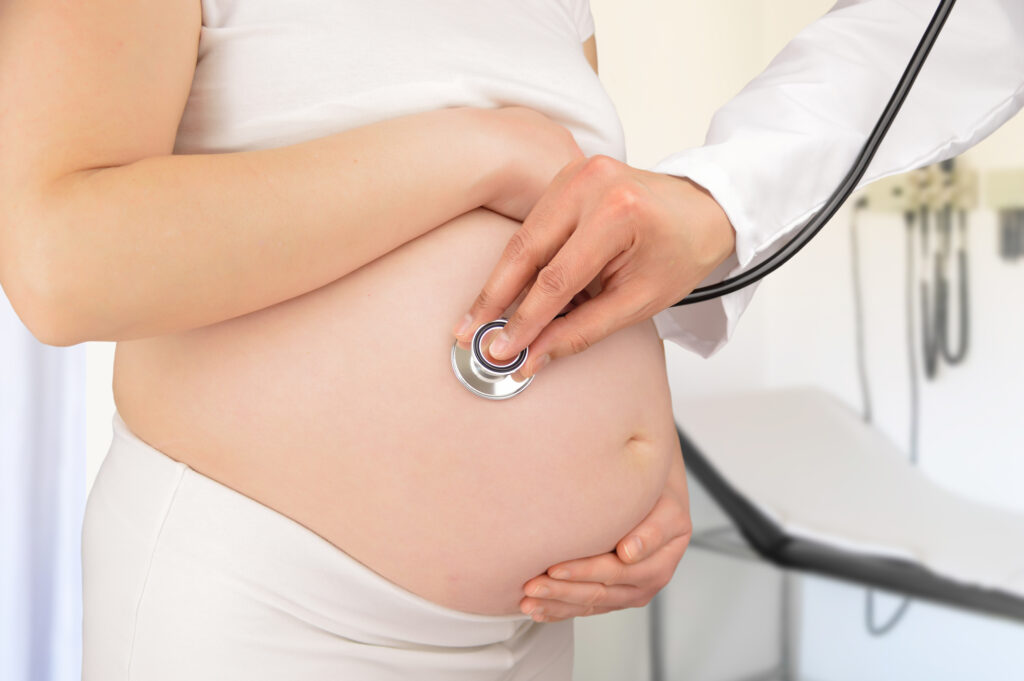What is Preeclampsia?

There are many factors that can affect a pregnancy, from the mother’s diet and weight to her genetics. Of course, we always hope for mothers to have safe and healthy pregnancies, but it is important to be aware of disorders and diseases that can develop during the pregnancy. Preeclampsia is a disorder that occurs in about 1 in 25 pregnancies in the US.
What happens during preeclampsia?
Preeclampsia, a blood pressure disorder, can develop during pregnancy, usually during the third trimester. It can affect the mother’s entire body, causing headaches, nausea, sudden weight gain, difficulty breathing, changes in vision, and pain in the abdomen.
What causes preeclampsia?
Doctors are not entirely sure what causes preeclampsia. However, there are certain factors that can put mothers at a higher risk of developing preeclampsia. These include having kidney disease, being pregnant with more than one child, having preeclampsia in a past pregnancy, and chronic hypertension.
What are the risks to my baby if I develop preeclampsia?
The risks of preeclampsia to the baby are severe. If the mother has preeclampsia, the baby may need to be delivered immediately, even if he or she is premature. Of course, babies born prematurely also have an increased risk of complications. If preeclampsia does occur during your pregnancy, your doctor will be able to answer all of your questions about the risks to you and your baby as well as their recommendations to make sure you both stay healthy and well.
How do I prevent or treat preeclampsia?
In order to best prevent preeclampsia, it is best to identify any factors that you may have which could put you at a higher risk of developing the disorder. Manage these factors first, before becoming pregnant. For example, a woman who is overweight should lose weight before becoming pregnant, or if you have diabetes, see your doctor to ensure the condition is under control.
Preeclampsia will usually need to be treated in the hospital, where doctors will work to stabilize your condition and may recommend that the baby is delivered immediately, especially if it is after 34 weeks. It is also likely that you will be given medications to help reduce blood pressure and prevent seizures.
Every mother’s pregnancy is different, and it is important to continue to see your OBGYN during your pregnancy to monitor the development of your baby and identify any potentially dangerous conditions, such as preeclampsia. If preeclampsia does occur during your pregnancy, your doctors will determine the best course of action for you.
If you have questions regarding your pregnancy or need to schedule an appointment with your doctor, please call 307-634-5216.
For more information about preeclampsia, we recommend you visit this resource from The American College of Obstetricians and Gynecologists.

Leave a Reply